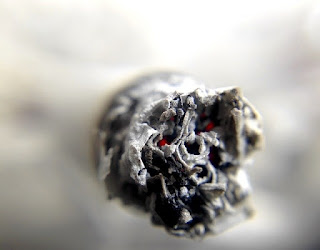When beginning a journey of long-term recovery, you can benefit from putting all mind-altering substances behind you. When people speak of total abstinence, caffeine and nicotine are often excluded from the conversation. Some contend that it’s best to worry about the more severe substances (drugs and alcohol) first and then address tobacco down the road.
In some respects, it makes sense; there isn’t much evidence of tobacco playing a role in one’s life falling apart. Nobody has ever been arrested for using too much tobacco. Even though smoking is proven hazardous to one’s health, it can be easy to justify continued use long into recovery.
If the adverse effects on your health are not enough to get you to consider smoking cessation, maybe lasting recovery will tip the scales. As we have shared before on this blog, smoking cigarettes is associated with a higher risk of substance use disorder relapse. Since preventing relapse is of the utmost importance, please consider smoking cessation in early recovery. Research published in the Journal of Clinical Psychiatry states:
“Continued smoking for smokers and smoking initiation for non-smokers was associated with greater odds of substance use disorder relapse. More research is needed to examine the timing of substance use disorder relapse in relation to smoking behaviors. Incorporating smoking cessation and prevention efforts into substance abuse treatment may improve long-term substance use outcomes for adult smokers with substance use disorders.”
The risk of relapse is exceptionally high in the first year of recovery. Do whatever you can to lead a healthier existence, and it will pay off in the long run. If you are in treatment, speak to your clinicians about smoking cessation techniques.
No Healthy Replacements for Cigarettes
In recent years, many people have made the switch from tobacco to e-cigarettes. While some experts contend that the latter is a healthier alternative to smoking, there is still a lot we do not know about the dangers. Smokeless tobacco can be just as unhealthy as cigarettes; dips and chew are linked to various cancers. There is also the fact that nicotine is still a mind-altering substance that could increase the risk of substance use disorder relapse.
On top of e-cigarettes, advancements in technology have also given us “heat-not-burn” tobacco products. People who use products like IQOS from Philip Morris may think that they are reducing the risk of harm by making the switch from traditional tobacco products. However, new research suggests that these products carry risks.
Researchers from Louisiana State University (LSU) Health Sciences Center in New Orleans found that heat-not-burn (HNB) products damage the heart, HealthDay reports. While the body of research is limited, the authors analyzed almost 50 human and rodent studies. The review appears in the American Journal of Physiology-Heart and Circulatory Physiology.
“Heat-not-burn devices are marketed as a safer alternative to cigarettes for existing smokers. However, as we have learned from vaping and e-cigarettes, these products are very likely to be used by minors and never-smokers due to marketing, flavor options and lack of social stigma that is found with traditional cigarettes,” study co-author Jason Gardner said in a university news release.
The researchers found that noncombustible cigarettes were linked to:
- High Blood Pressure
- Reduced Dilation of Blood Vessels
- Stiffening of the Arteries
- Increased Heart Rate
- Reduced Heart Function
The authors conclude, “Use of these products can lead to nicotine addiction and additional clinical, basic science, and epidemiological studies are needed to better understand the health effects of HNB products. This knowledge will assist consumers, physicians, lawmakers, and regulatory bodies in making informed decisions about these products.”
California Substance Use Disorder Treatment
If you or a loved one is in the grips of alcohol or substance use disorder, please contact Hope By The Sea to learn more about our programs and services. We help our clients begin the journey of long-term addiction recovery. Hope Starts Here at 866-930-4673.


